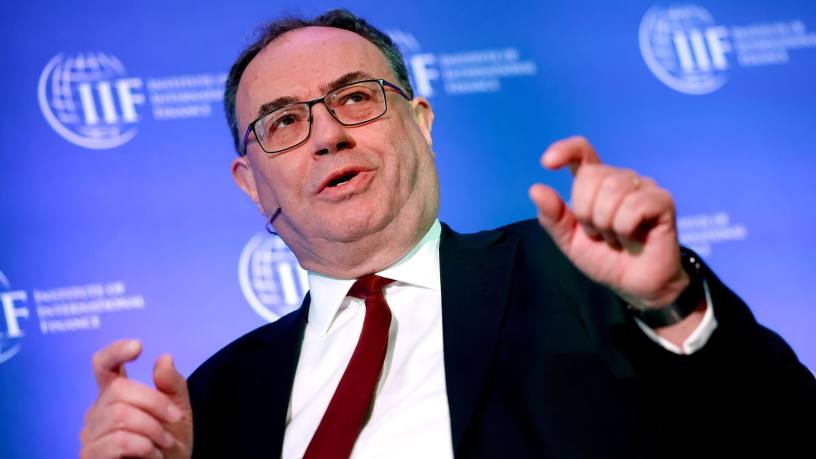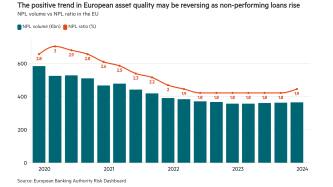The British economy is in a period of “disinflation” with “full employment”, Bank of England governor Andrew Bailey has said.
Bailey gave a keynote speech at an Institute of International Finance conference today, running alongside the spring meetings of the IMF and World Bank in Washington DC, providing an update on the outlook for UK inflation and other work the bank is doing to improve its forecasting.
“We expect it to come down quite a bit next month and are on track to meet our target,” Bailey said at the IIF's conference in Washington DC. His remarks came hours after the BoE announced inflation had fallen to 3.1 per cent in March from 3.4 per cent the previous month, a slightly smaller drop than expected by analysts.
“Let’s look at the three components of it: services inflation is coming down, as is wage inflation. The third, that is the quantity side of the labour market, is harder to read because the reporting system is not behaving well.”
Yet the slower than expected fall in March inflation — combined with a rise in US inflation over the same period — has dampened the prospect of interest rates falling either side of the Atlantic in the coming months.
Ruth Gregory, deputy chief UK economist at Capital Economics, told Reuters on Wednesday there was a risk that Britain will follow the trend in the US and see inflation stall.
“The chances of interest rates being cut for the first time in June are now a bit slimmer,” she said.
Bailey also shared his surprise that the fallout from the Israel-Gaza conflict has had a limited impact on the oil price and supply chains.
“The last few months have been interesting as the economic consequences of the Middle East fallout [have] been contained.
“There is a difference between the Covid supply chain disruption and the Red Sea trade disruption. In the former, suppliers did not know whether their goods would be sent to customers, while the disruption now is more predictable.”
However Bailey warned that governments have to watch their level of debt as they are under pressure to spend large sums of money.
He added that former Fed chair Ben Bernanke’s recently published report urging the BoE to revamp its modelling forecasts was welcome.
“This work allows us to understand the effects of disasters better and improve the current monetary policy regime. It is time to reconsider quite a few elements of the regime that have run their course. Some features have been around for 25 years. There are no simple answers to these questions.”
Bailey was also asked if private credit is a source of instability.
“The issue is not so much private credit in and of itself, but rather how it is connected to other dangerous parts of the financial system in a period of stress.
“The BoE is doing work on tracing liquidity stress points in the non-bank world. It could lead to an exciting new tool the bank could use.”
Bailey also explained that artificial intelligence will not destroy all jobs, but instead have more subtle effects.
“AI will not lead to mass unemployment, but make some roles more productive and lead to retraining in others,” he said.













